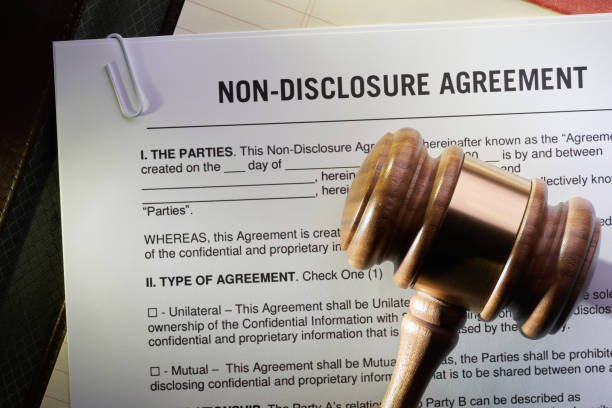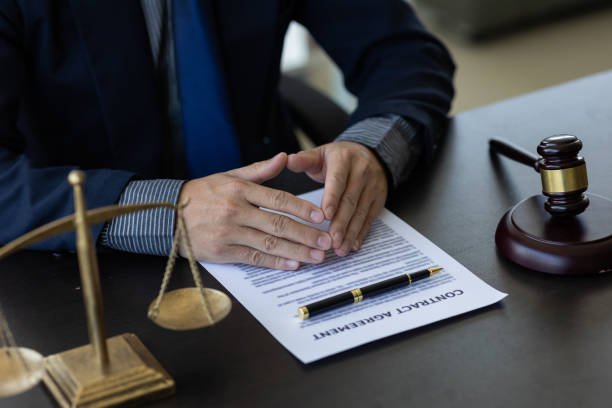Introduction:
Facing criminal charges can be one of the most challenging and stressful experiences in a person’s life. The legal system is complex, and navigating it without proper representation can have serious consequences. This comprehensive guide aims to provide a deep understanding of the dynamics of criminal defense, covering the role of a criminal defense attorney, the legal process, key considerations when choosing an attorney, and the rights of the accused.
I. The Role of a Criminal Defense Attorney:
A criminal defense attorney is a legal professional specializing in defending individuals or entities charged with criminal offenses. Their role is multifaceted, encompassing legal advocacy, strategic defense planning, negotiation with prosecutors, and representation in court. Understanding the key responsibilities of a criminal defense attorney is crucial for individuals facing criminal charges.
A. Legal Advocacy and Defense Strategy:
- Case Assessment: Upon taking a case, a criminal defense attorney assesses the details, evidence, and circumstances surrounding the charges. This initial evaluation informs the development of a defense strategy.
- Investigation: Attorneys conduct thorough investigations, gathering evidence, interviewing witnesses, and scrutinizing police procedures to build a strong defense.
- Legal Research: Criminal defense attorneys delve into legal precedents, statutes, and case law relevant to the charges, ensuring a comprehensive understanding of the legal landscape.
B. Negotiation with Prosecutors:
- Pretrial Negotiations: Criminal defense attorneys engage in pretrial negotiations with prosecutors to explore potential plea bargains, reduced charges, or alternative resolutions that may benefit the accused.
- Advocacy for Fair Sentencing: If a plea deal is on the table, the defense attorney works to secure the most favorable terms, including reduced sentences or alternatives to incarceration.
C. Courtroom Representation:
- Trial Preparation: If a case proceeds to trial, the defense attorney meticulously prepares by examining witnesses, preparing legal arguments, and anticipating the prosecution’s strategy.
- Legal Arguments: During trial, the defense attorney presents legal arguments, challenges evidence, cross-examines witnesses, and advocates for the client’s innocence or reduced liability.
- Post-Conviction Representation: In the event of a conviction, criminal defense attorneys may continue to represent clients during sentencing hearings, appeals, or post-conviction proceedings.
II. The Legal Process in Criminal Defense:
Understanding the legal process in criminal defense is essential for individuals navigating the complexities of the justice system. While specific procedures may vary based on jurisdiction and the nature of the charges, a general overview can provide insights into what to expect.
A. Arrest and Booking:
- Initial Detention: The legal process often begins with the arrest of an individual suspected of committing a crime. Law enforcement must have probable cause for the arrest.
- Booking: Following arrest, the individual is booked, which includes recording personal information, taking fingerprints and photographs, and documenting the charges.
B. Initial Appearance and Bail:
- Arraignment: The accused is brought before a court for an arraignment, where the charges are formally presented, and the defendant enters a plea (guilty, not guilty, or no contest).
- Bail Hearing: If the accused is held in custody, a bail hearing determines whether bail will be granted and the amount required for release.
C. Pretrial Proceedings:
- Discovery: Both the prosecution and defense engage in discovery, exchanging information and evidence that may be used in the trial.
- Motions: The defense may file pretrial motions to challenge evidence, request the dismissal of charges, or address legal issues before trial.
D. Trial:
- Jury Selection: The process of selecting a jury involves questioning potential jurors to ensure impartiality and a fair trial.
- Opening Statements: Attorneys present opening statements outlining their cases and the evidence they intend to present.
- Witness Testimony: Witnesses for both the prosecution and defense provide testimony, subject to cross-examination.
- Closing Arguments: Attorneys deliver closing arguments, summarizing their cases and persuading the jury to reach a particular verdict.
E. Verdict and Sentencing:
- Jury Verdict: The jury deliberates and returns a verdict of guilty or not guilty. In some cases, a mistrial may be declared if the jury cannot reach a unanimous decision.
- Sentencing: If the accused is found guilty, a separate sentencing hearing determines the punishment, which may include fines, probation, or incarceration.
III. Key Considerations When Choosing a Criminal Defense Attorney:
Selecting the right criminal defense attorney is a critical decision that can significantly impact the outcome of a case. Several key considerations should guide individuals in their search for effective legal representation.
A. Specialization and Expertise:
- Criminal Law Focus: Choose an attorney with a primary focus on criminal law, as opposed to a general practitioner. Specialization indicates a deeper understanding of the complexities inherent in criminal cases.
- Experience in Relevant Practice Areas: Consider an attorney’s experience in the specific area of criminal law relevant to the charges, whether it be DUI defense, drug offenses, white-collar crimes, or violent crimes.
B. Track Record and Success:
- Case Outcomes: Evaluate an attorney’s track record by examining the outcomes of cases they have handled. Positive results, especially in cases similar to yours, are indicative of effective representation.
- Client Testimonials: Reviews and testimonials from previous clients can offer insights into an attorney’s communication skills, professionalism, and client satisfaction.
C. Legal Research and Writing Skills:
- Analytical Skills: Effective criminal defense requires strong analytical skills. Assess an attorney’s ability to analyze complex legal issues and build compelling legal arguments.
- Writing Skills: A criminal defense attorney should have excellent writing skills for drafting legal motions, briefs, and other documents critical to the defense strategy.
D. Negotiation Skills:
- Experience in Plea Bargaining: Negotiating with prosecutors is a common aspect of criminal defense. An attorney with experience in plea bargaining can potentially secure favorable outcomes for clients.
- Communication Style: A defense attorney should possess effective communication skills for negotiations, clearly articulating the client’s position and advocating for the best possible resolution.
E. Trial Experience:
- Courtroom Presence: A seasoned criminal defense attorney should be comfortable and confident in the courtroom, presenting a compelling case to judges and juries.
- Successful Trials: Consider an attorney’s history of successful trials, as this demonstrates their ability to navigate legal proceedings and advocate effectively for clients.
F. Availability and Communication:
- Accessibility: Choose an attorney who is accessible and responsive, addressing client inquiries promptly and providing updates on case developments.
- Client-Centric Approach: A client-centric approach involves keeping the client informed, involving them in decision-making, and ensuring their concerns are addressed throughout the legal process.
G. Legal Fees and Transparent Billing:
- Fee Structure: Understand the attorney’s fee structure, whether it’s hourly rates, flat fees, or contingency fees. Transparent billing practices contribute to a clear understanding of costs.
- Cost-Benefit Analysis: Assess the overall value provided by the attorney in relation to their fees, considering the potential outcomes and benefits of effective legal representation.
IV. Rights of the Accused:
Understanding the rights afforded to individuals accused of crimes is fundamental to ensuring a fair legal process. These rights, enshrined in constitutional and legal principles, serve as safeguards against unjust treatment.
A. The Right to Legal Representation:
- Sixth Amendment Right: The Sixth Amendment to the U.S. Constitution guarantees the right to legal representation. Individuals may choose their own attorney or have one appointed if they cannot afford legal counsel.
- Effective Assistance of Counsel: The right to legal representation includes the right to effective assistance of counsel, ensuring that the defense attorney advocates competently on behalf of the accused.
B. The Right to Remain Silent:
- Fifth Amendment Right: The Fifth Amendment protects the right against self-incrimination. The accused has the right to remain silent and cannot be compelled to testify against themselves.
- Miranda Rights: The Miranda warning informs individuals of their right to remain silent and their right to an attorney during police interrogations.
C. The Right to a Fair and Impartial Trial:
- Sixth Amendment Right: The right to a fair and impartial trial includes the right to an unbiased jury, the right to confront witnesses, and the right to present a defense.
- Presumption of Innocence: The accused is presumed innocent until proven guilty beyond a reasonable doubt. This fundamental principle places the burden of proof on the prosecution.
D. The Right to Confront Witnesses:
- Sixth Amendment Right: The accused has the right to confront and cross-examine witnesses presented by the prosecution, challenging the credibility and reliability of testimony.
- Confrontation Clause: The Confrontation Clause ensures that the accused has the opportunity to confront adverse witnesses in court.
E. The Right to Due Process:
- Fifth and Fourteenth Amendment Rights: The Fifth and Fourteenth Amendments guarantee the right to due process, ensuring that legal proceedings are fair, transparent, and conducted according to established rules.
- Procedural Safeguards: Due process includes procedural safeguards such as notice of charges, the right to legal representation, and the right to a fair and impartial tribunal.
V. Conclusion:
Navigating the dynamics of criminal defense requires a comprehensive understanding of the legal process, the role of a criminal defense attorney, and the rights of the accused. Choosing the right attorney involves careful consideration of specialization, experience, track record, communication skills, and legal fees. The rights afforded to the accused, including the right to legal representation, the right to remain silent, and the right to a fair trial, are fundamental pillars of the justice system.
In the final analysis, the collaboration between an informed and engaged client and a skilled criminal defense attorney is pivotal in achieving the best possible outcome in the face of criminal charges. Armed with knowledge, individuals can approach the legal process with confidence, ensuring their rights are protected and their defense is conducted with the utmost professionalism and expertise.



